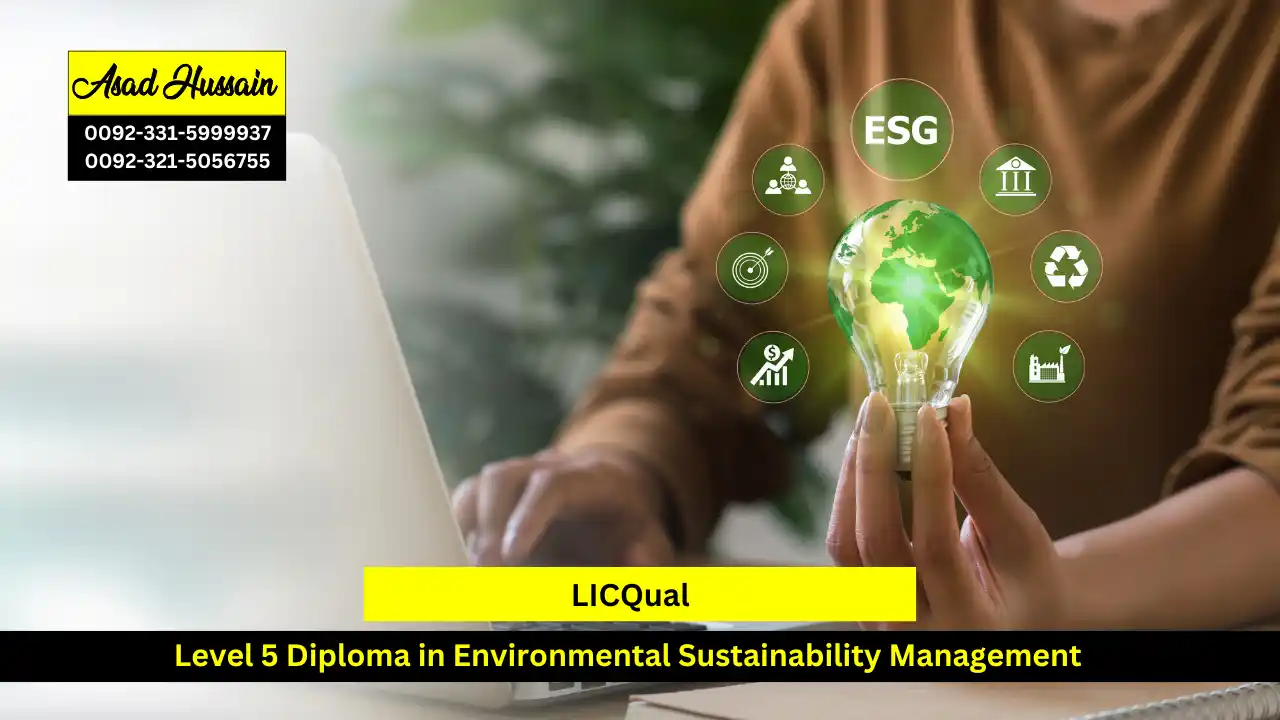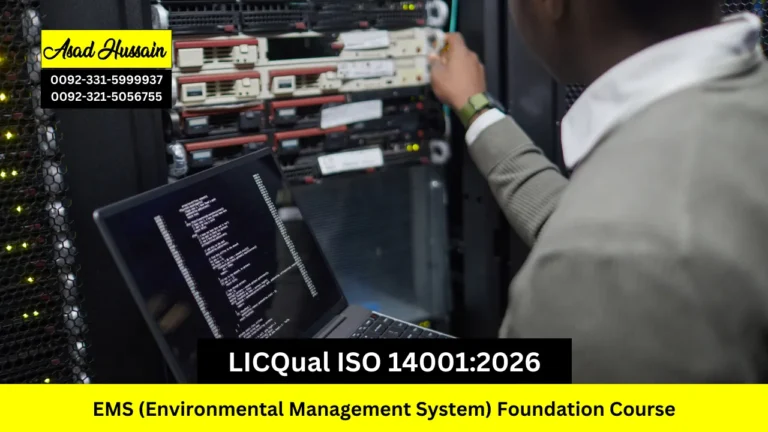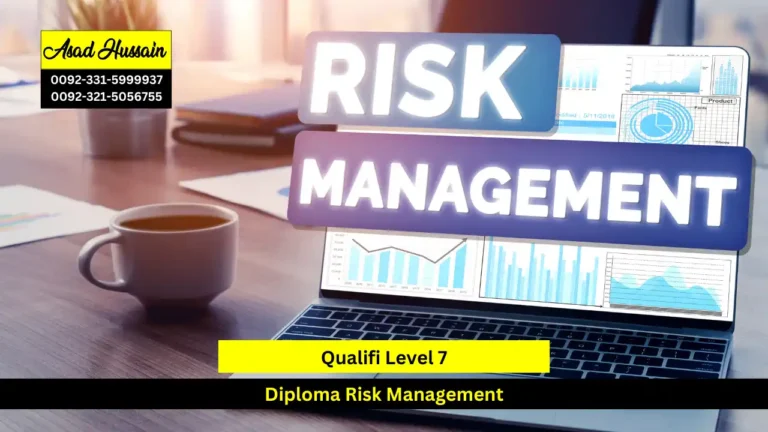In an era where environmental concerns are at the forefront of global discussions, the demand for skilled professionals in sustainability management is soaring. The Level 5 Diploma in Environmental Sustainability Management is a pivotal qualification designed for those looking to drive positive change and lead sustainability initiatives within various sectors. This blog post explores what this diploma entails, its significance, and the myriad benefits it offers to aspiring environmental managers and organizations alike.
The Level 5 Diploma in Environmental Sustainability Management is an advanced qualification aimed at equipping individuals with the knowledge, skills, and tools needed to implement and manage effective sustainability practices within organizations. This diploma focuses on the strategic and operational aspects of environmental sustainability, preparing professionals to lead and manage sustainability initiatives that align with both organizational goals and environmental regulations.
The Level 5 Diploma in Environmental Sustainability Management is more than just a qualification; it is a gateway to making a significant impact in the field of environmental sustainability. It empowers professionals to lead with confidence, drive meaningful change, and contribute to a greener future. Whether you are looking to advance your career, enhance your organization’s sustainability efforts, or play a pivotal role in environmental stewardship, this diploma offers the comprehensive training needed to excel in the dynamic and vital field of environmental sustainability management. Embrace the opportunity to be at the forefront of sustainability and make a lasting difference with this essential qualification.
Program Highlights
Mandatory Units
- Environmental Sustainability Principles and Concepts
- Sustainable Development Strategies
- Environmental Policy and Legislation
- Environmental Impact Assessment
- Sustainable Resource Management
- Climate Change Mitigation and Adaptation
- Corporate Social Responsibility
- Green Technology and Innovation
1. Educational Background:
- Relevant Qualifications: Typically, candidates should have a Level 4 qualification or equivalent in a related field such as environmental science, business management, or a similar discipline. This could include a Level 4 Certificate, an HND, or a degree in a relevant subject.
- Alternative Qualifications: In the absence of formal qualifications, substantial relevant work experience in environmental management or sustainability may be considered.
2. Professional Experience:
- Work Experience: Applicants should have some professional experience in a role related to environmental sustainability, management, or corporate responsibility. While not always mandatory, having at least one to two years of experience in a relevant position can be beneficial.
- Role Relevance: Experience in roles that involve environmental policy, resource management, or sustainability initiatives is particularly relevant.
3. Knowledge and Skills:
- Basic Understanding: A foundational understanding of environmental sustainability concepts and practices is expected. This can be demonstrated through previous coursework or professional experience.
- Skills: Candidates should possess basic research and analytical skills, as well as the ability to engage with environmental regulations and policies.
4. English Language Proficiency:
- Language Skills: For non-native English speakers, a demonstrated proficiency in English is required. This can be proven through language tests such as IELTS or TOEFL, or through previous academic qualifications conducted in English.
5. Motivation and Commitment:
- Personal Statement: Applicants may be required to submit a personal statement or letter of intent outlining their interest in the course, career goals, and how the diploma will contribute to their professional development.
- Commitment: Demonstrating a strong commitment to advancing in the field of environmental sustainability is crucial. This includes an eagerness to engage with course materials and participate in practical assessments.
6. Interview or Assessment:
- Selection Process: Some institutions may require an interview or an additional assessment to evaluate candidates’ suitability for the course. This is to ensure that applicants have the necessary background and motivation to succeed.
7. Technical Requirements:
- Access to Technology: For courses that include online or blended learning components, candidates should have access to a computer and the internet, as well as basic IT skills to engage with online platforms and resources.
1. Environmental Sustainability Principles and Concepts
- Understand Key Principles: Demonstrate a thorough understanding of the core principles and concepts of environmental sustainability, including the balance between environmental, economic, and social factors.
- Apply Theoretical Frameworks: Apply relevant theoretical frameworks and models to analyze sustainability issues and develop solutions.
- Evaluate Sustainability Practices: Critically evaluate current sustainability practices and their effectiveness in different contexts.
- Integrate Concepts: Integrate sustainability principles into practical decision-making processes and organizational strategies.
2. Sustainable Development Strategies
- Develop Strategic Plans: Design and implement strategic plans that promote sustainable development and align with organizational goals.
- Assess Strategic Impact: Evaluate the potential impact of sustainable development strategies on various aspects of an organization and its stakeholders.
- Implement Best Practices: Apply best practices in sustainable development to create actionable plans that drive long-term environmental and social benefits.
- Monitor and Review: Monitor the implementation of strategies and review their effectiveness, making adjustments as necessary to meet sustainability objectives.
3. Environmental Policy and Legislation
- Understand Regulations: Gain a comprehensive understanding of environmental policies and legislation at local, national, and international levels.
- Develop Policies: Create and implement environmental policies that comply with legal requirements and address organizational needs.
- Ensure Compliance: Monitor and ensure compliance with environmental regulations and standards, including preparing necessary documentation and reports.
- Advocate for Change: Advocate for policy changes and improvements based on environmental performance and emerging legislative trends.
4. Environmental Impact Assessment
- Conduct Assessments: Perform environmental impact assessments (EIAs) to identify, analyze, and mitigate the environmental effects of projects and activities.
- Evaluate Results: Interpret assessment results to make informed decisions about environmental management and risk mitigation.
- Communicate Findings: Present assessment findings to stakeholders in a clear and actionable manner.
- Integrate Mitigation Measures: Develop and implement mitigation measures based on EIA findings to minimize adverse environmental impacts.
5. Sustainable Resource Management
- Optimize Resource Use: Implement strategies to optimize the use of resources such as energy, water, and materials, focusing on efficiency and conservation.
- Promote Circular Economy: Apply principles of the circular economy to enhance resource sustainability and reduce waste.
- Assess Resource Efficiency: Evaluate resource management practices and identify opportunities for improvement and innovation.
- Develop Resource Management Plans: Create and manage resource management plans that support sustainability goals and operational efficiency.
6. Climate Change Mitigation and Adaptation
- Develop Mitigation Strategies: Design and implement strategies to mitigate climate change impacts, including reducing greenhouse gas emissions.
- Adaptation Planning: Develop and execute adaptation plans to address the effects of climate change on organizational operations and assets.
- Evaluate Effectiveness: Assess the effectiveness of climate change mitigation and adaptation measures and make data-driven improvements.
- Promote Resilience: Enhance organizational resilience to climate change through innovative approaches and adaptive practices.
7. Corporate Social Responsibility (CSR)
- Understand CSR Principles: Demonstrate an understanding of corporate social responsibility principles and their role in promoting sustainable business practices.
- Develop CSR Strategies: Create and implement CSR strategies that align with organizational values and address key social and environmental issues.
- Engage Stakeholders: Effectively engage with stakeholders to communicate CSR initiatives and gather feedback.
- Measure Impact: Assess and report on the impact of CSR activities, including social and environmental benefits, and use this information to drive continuous improvement.
8. Green Technology and Innovation
- Evaluate Green Technologies: Assess and apply green technologies and innovations that contribute to sustainability goals and enhance environmental performance.
- Drive Technological Advancement: Foster a culture of innovation by integrating green technologies into organizational practices and processes.
- Measure Technological Impact: Analyze the environmental and economic impacts of green technologies and innovations to ensure they deliver value.
- Stay Informed: Keep abreast of emerging green technologies and trends to inform strategic decision-making and sustainability initiatives.
The Level 5 Diploma in Environmental Sustainability Management is tailored for professionals and aspiring leaders who are committed to advancing their expertise in environmental sustainability. This course is ideal for individuals currently working in or seeking to enter roles related to environmental management, corporate social responsibility, or sustainability. It is particularly suited for those who hold a relevant Level 4 qualification or have significant work experience in related fields. Environmental consultants, sustainability officers, project managers, and policy makers will benefit from this course as it provides advanced knowledge and practical skills needed to develop and implement effective sustainability strategies. Additionally, the diploma is valuable for professionals looking to transition into sustainability roles or enhance their career prospects by acquiring specialized knowledge in green technology, regulatory compliance, and sustainable resource management.







